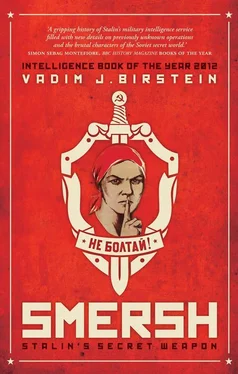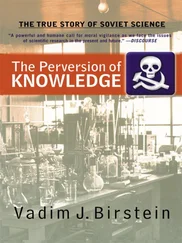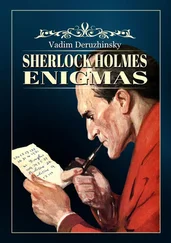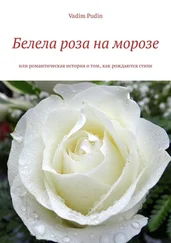59. Anatrolii Tereshchenko, SMERSH v boyu (Moscow: Yuza-Eksmo, 2010), 187 (in Russian).
60. Fitin’s report, dated December 8, 1945. GARF, Fond R-9401, Opis’ 2 (Molotov’s NKVD/MVD Special Folder), Delo 105, L. 354–5.
61. Quoted in Abarinov, ‘V kuluarakh.’
62. Drafts (LX-1 and LX-2) and the final version of the report ‘General Observations on the Soviet Intelligence Mission in Nuremberg’ dated October 16, 1946 (February 1—June 15, 1946). NARA (Washington), RG 226, Entry 213, Box 2.
63. Richard W. Cutler, Counterspy: Memoirs of a Counterintelligence Officer in World War II and the Cold War (Washington, DC: Brassey’s, Inc., 2004), 125—31.
64. The final report, NARA, RG 226, Entry 213, Box 2.
65. Report LX-1 dated February 1–June 15, 1946, NARA, RG 226, Entry 213, Box 2.
66. Ibid.
67. Vaksberg, Stalin’s Prosecutor , 232–3.
68. Boris Yefimov, Desyat’ desyatiletii. O tom, chto videl, perezhil, zapomnil (Moscow: Vagrius, 2000), 416–7, 428 (in Russian).
69. Pravda , December 12, 1945.
70. Abarinov, ‘V kuluarakh,’ 69–70.
71. Details in Zorya, ‘Prokurorskaya diplomatiya,’ 279–82.
72. The Nuremberg Trial , Vol. 10, 310–4, http://avalon.law.yale.edu/imt/04-01-46.asp; Vol. 14, 285, http://avalon.law.yale.edu/imt/05-21-46.asp, retrieved September 9, 2011.
73. Alfred Seidl, Der Fall Rudolf Hess 1941—1987: Dokumentation des Verteidigers (München: Universitas, 1988), 170.
74. Krystyna Kurczab-Redlich, ‘Doklad Zori,’ Russkii Zhurnal , November 24, 2000 (in Russian), http://old.russ.ru/ist_sovr/other_lang/20001124.html, retrieved September 9, 2011.
75. Application of Dr. Otto Stahmer on March 8, 1946, in The Nuremberg Trial , Vol. 9, 2–3, http://avalon.law.yale.edu/imt/03-08-46.asp, retrieved September 9, 2011.
76. Ibid., Vol. 17, http://avalon.law.yale.edu/imt/07-01-46.asp; http://avalon.law.yale.edu/imt/07-02-46.asp, retrieved September 9, 2011. More information in Taylor, The Anatomy of Nuremberg, 466–72.
77. T. S. Stupnikova, ‘… Nichego, krome pravdy…’ Nurnberg—Moskva: Vospominaniya (Moscow: Russkie slovari, 1998), 104 (in Russian).
78. Transcript of the meeting on March 21, 1946. Document No. 222 in Katyn. Mart 1940 g.—sentyabr’ 2000 g. Rasstrel. Sud’by zhivykh. Ekho Katyni. Dokumenty , edited by N. S. Lebedeva, N. A. Petrasova, B. Voshchinski, et al. (Moscow: Ves’ Mir, 2001), 555–6 (in Russian).
79. An interview with the historian Nataliya Lebedeva, in Yekaterina Latartseva, ‘Nepriyatnaya pravda Nyurnberg’, Trud , no. 149, August 31, 2011 (in Russian), http://luke.trud.ru/index.php/article/31-08-2011/267017_neprijatnaja_pravda_njurnberga.html, retrieved September 9, 2011.
80. Stupnikova, ‘…Nichego krome pravdy…’ 104.
81. Persico, Nuremberg , 343–4.
82. A letter of D. M. Reznichenko to Yu. N. Zorya, quoted in Abarinov, ‘V kuluarakh,’ page 68.
83. Sheinin’s testimony quoted in Aleksandr Zvyagintsev and Yurii Orlov, Prokurory dvukh epokh. Abdrei Vyshinsky i Roman Rudenko (Moscow:Olma-Press), 215 (in Russian).
84. Grishaev and Solovov, ‘Domyslami nel’zya snyat.’
85. SMERSH. Istoricheskie ocherki , 324.
EPILOGUE
The Road to the Top: Abakumov Becomes a Minister
With the end of the war, the necessity for SMERSH as a separate military counterintelligence organization disappeared and in spring of 1946, Stalin began restructuring the security services. By March, Viktor Abakumov reached the peak of his career, being appointed State Security (MGB) Minister. Many of SMERSH’s high-ranking officers received key positions in the MGB, while GUKR SMERSH became the 3rd Main Directorate of the MGB. As usual, this process was a result of Stalin’s planning and Politburo decisions. Here is how it happened.
On September 4, 1945, the GKO was disbanded and the Politburo returned to its routine work. 1A month later, at the Politburo’s suggestion, Stalin went on vacation to the Caucasus—his first holiday in nine years. On December 17, 1945, he was back in Moscow, and that evening he met in the Kremlin with Viktor Abakumov, who was still head of SMERSH. Also present were Nikolai Bulganin, former member of the GKO and Deputy Defense Commissar, Aleksei Antonov, head of the General Staff, and Sergei Shtemenko, head of the Operational Directorate of the General Staff. At 8:15 p.m., Abakumov left Stalin’s office, while the other generals remained with Stalin for the next 40 minutes. 2Most probably, Stalin discussed with the military leaders the changes he planned to make in the structure of the defense and state security commissariats.
On December 29, 1945, the Politburo approved Lavrentii Beria’s request to be dismissed from his post as NKVD Commissar. 3Stalin personally edited the draft of the decision and wrote the reason for the dismissal: ‘Because he [Beria] is too overwhelmed with work at his other central position.’ Apparently, Beria’s appointment as head of the Atomic Project was so secret that Stalin did not want to mention it even in an internal Politburo document. Beria’s first deputy, the colorless but dependable Sergei Kruglov (whose organization of security during the Yalta, Potsdam, and San Francisco conferences had impressed the British and American leaders), was appointed as NKVD Commissar and on January 10, 1946, he started his new job.
During the first months of 1946, Stalin was changing his policy toward former Western allies. On February 9, 1946, in a speech at a meeting at the Bolshoi Theater, Stalin stressed the economic progress in the Soviet Union that, according to him, was the basis of the Soviet victory over Nazi Germany. 4Stalin did not mention the role of the Western Allies in WWII and their crucial economic aid to the USSR. He did, however, discuss the inevitable clash between the two world systems of power, capitalism and Communism. This was the first step toward Soviet isolationism.
The reaction of the West was quick. On March 15, 1946, former British Prime Minister Winston Churchill delivered his famous ‘iron curtain’ speech in Fulton, Missouri, calling for a unified British–American response to the growing Soviet aggression. 5The Cold War had begun, and according to Stalin, the Soviet Union needed better-organized management of its economy and tighter political control over the country.
On March 15, 1946, the same day Churchill gave his speech in Missouri, the names of all commissariats were changed to ministries on Stalin’s suggestion. Stalin’s reasoning was that the title ‘commissar reflects the period of Civil War and revolutionary changes… The war [WWII] showed that our social organization is very strong… It is time to replace the title “commissar” with the title “minister.”’ 6Four days later the Council of Commissars was renamed the Council of Ministers, and Stalin was appointed its Chairman, with Beria as one of his deputies. Kruglov became Minister of Internal Affairs or head of the MVD, and Merkulov was named State Security Minister, head of the MGB—a position he held for only a month and a half.
Before Merkulov was dismissed, on November 29, 1945, the Politburo replaced Merkulov’s First Deputy Bogdan Kobulov, whom Beria brought from Georgia to Moscow in 1939, with Sergei Ogoltsov. Ogoltsov joined the CheKa in 1918 and made his career mostly in provincial special departments. Stalin chose Ogoltsov for the new MGB post because from December 1942 till March 1944, Ogoltsov headed the NKVD/NKGB regional branch in the city of Kuibyshev, the second Soviet capital during the war, where most governmental offices and foreign embassies were evacuated. Stalin considered Ogoltsov as a possible replacement of Merkulov. But for the next five years, Ogoltsov remained the second person in the MGB and became an acting minister for only a month after Abakumov’s arrest in July 1951.
Читать дальше












